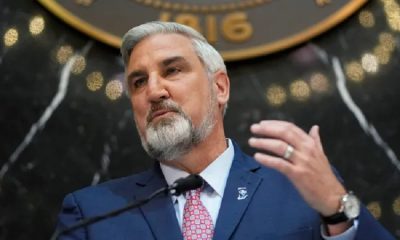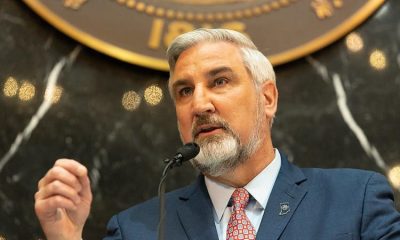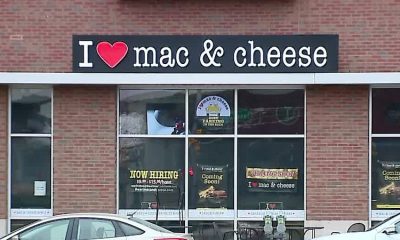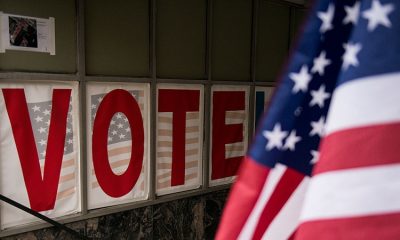Local News
According to forecasts, Indiana’s state budget will get $1.6 billion in fresh funding

Indianapolis, Indiana – Although a state estimate indicates that economic growth is slowing, lawmakers will still have extra money to use in the upcoming budget.
According to projections presented at a state budget committee meeting on Thursday, lawmakers in Indiana will have $1.6 billion in new cash available to them to use in the upcoming two-year budget.
Though spending requests are piling up quickly, state senator Ryan Mishler (R-Bremen), who heads the Senate Appropriations Committee, told reporters.
“Just the agencies alone have asked for over $700 million, which is more than a $600 million increase,” Mishler said. “And we haven’t even discussed member requests, K-12 tuition support or higher ed.”
The State Budget Agency estimates that Indiana now has a surplus of close to $4 billion.
This comes after lawmakers enacted a tax cut package earlier in the year that included a reduction in the income tax rate and the abolition of the utility receipts tax, as well as a $1 billion return to taxpayers during the special session.
However, according to Mishler, the excess cannot be fully utilized in the following budget.
“There’s three buckets that we don’t touch, and that’s the Medicaid reserve, the tuition reserve, and the rainy day fund,” he said.
Mishler said it’s unclear just how much funding for public health lawmakers will be able to boost. A commission recommended $240 million in extra state spending every year earlier this year.
“I think we have more than what we anticipate,” said State Rep. Greg Porter (D-Indianapolis), ranking minority member on the House Ways and Means committee.
Porter stated that he wants to guarantee that funding for public health and education remains a top priority.
“In order to have a strong economy, you got to have a good workforce, and the workforce does have to do with health,” Porter said.
Porter expressed his worry that certain tax reductions already enacted earlier this year, such as the removal of the utility receipts tax, may have cost the state significant sums of money.
Republicans, though, aren’t ruling out additional tax cuts this session. As Mishler said, it involves balancing.
“When you cut taxes, you reduce revenue,” Mishler said. “So it depends on what you want to spend.”
-

 Local News2 weeks ago
Local News2 weeks agoHolcomb is expected to travel to Brazil and Mexico for economic development
-

 Local News2 weeks ago
Local News2 weeks agoIn the United States, Indiana is considered to be one of the least “green” states
-

 Local News2 weeks ago
Local News2 weeks agoFreight railroads have requested that the courts strike down a new regulation mandating two-person crews on trains
-

 Local News2 weeks ago
Local News2 weeks agoCommunities throughout Indiana will get another $500 million in READI awards
-

 Local News2 weeks ago
Local News2 weeks agoAccording to the complaint, I Heart Mac & Cheese broke the Indiana Franchise Act
-

 Local News2 weeks ago
Local News2 weeks agoFunding shortfall forces FCC to cut internet subsidies
-

 Local News1 week ago
Local News1 week ago3 Indiana school districts asking voters for funding in May primary election
-

 Local News1 week ago
Local News1 week agoHendricks Co. Sheriff’s deputy dies after being electrocuted at crash scene






Leave a Reply